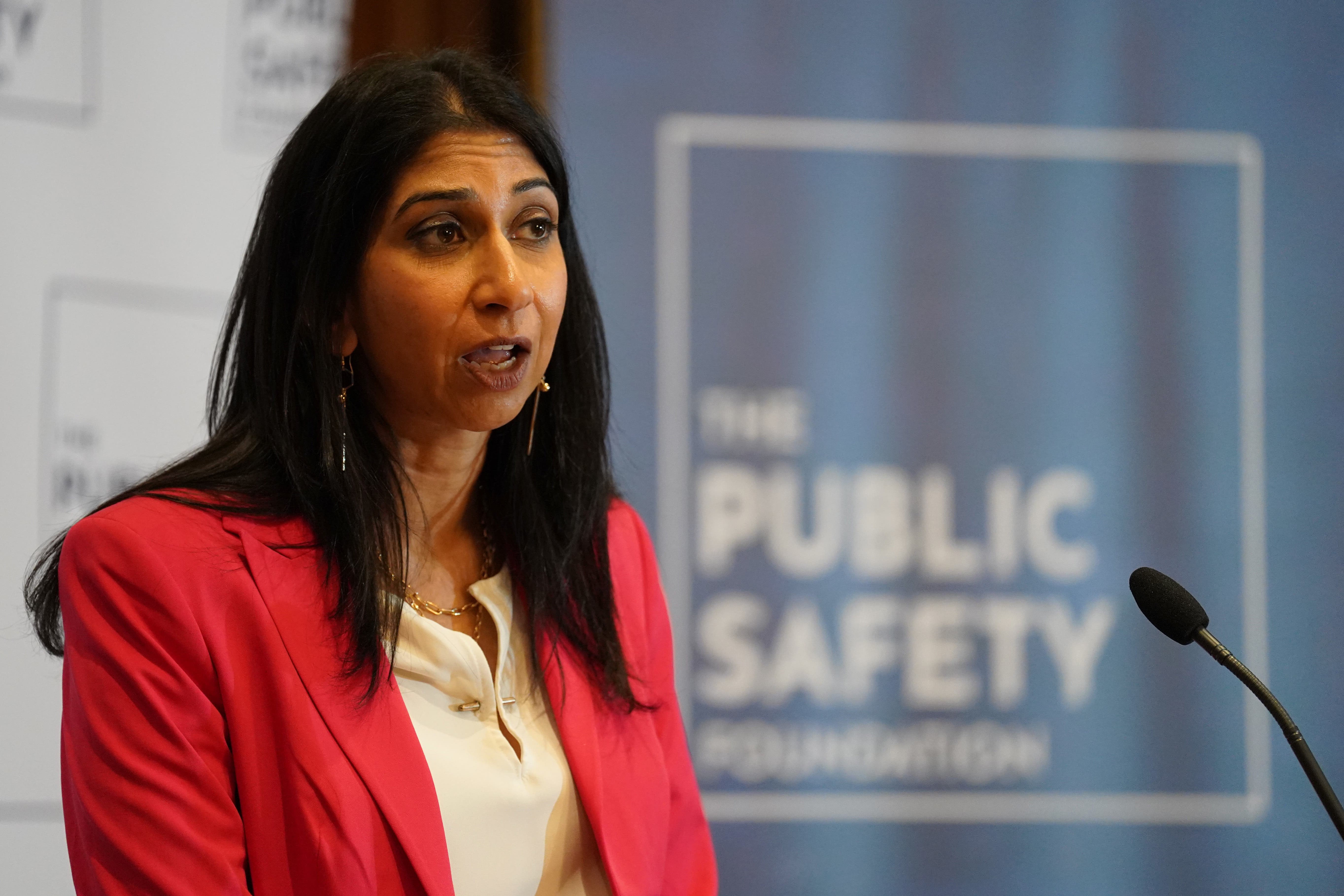Braverman claims police are seen at times to be ‘supporting militant protesters’
The Home Secretary said there is a ‘damaging’ perception that officers are at times on the side of climate demonstrators.

Your support helps us to tell the story
From reproductive rights to climate change to Big Tech, The Independent is on the ground when the story is developing. Whether it's investigating the financials of Elon Musk's pro-Trump PAC or producing our latest documentary, 'The A Word', which shines a light on the American women fighting for reproductive rights, we know how important it is to parse out the facts from the messaging.
At such a critical moment in US history, we need reporters on the ground. Your donation allows us to keep sending journalists to speak to both sides of the story.
The Independent is trusted by Americans across the entire political spectrum. And unlike many other quality news outlets, we choose not to lock Americans out of our reporting and analysis with paywalls. We believe quality journalism should be available to everyone, paid for by those who can afford it.
Your support makes all the difference.Suella Braverman has claimed police are sometimes seen to be “supporting militant protesters” as she renewed her demands for what she describes as a “common sense” approach to enforcing the law.
The Home Secretary said there is a “damaging” perception that officers are at times on the side of climate demonstrators, adding: “They need to be seen to be serious.”
Police should not take the knee, show support for critical race theory or intervene in gender critical debate online, Ms Braverman insisted.
The comments came as the Home Secretary set out her vision of so-called “common sense policing”, which she said focuses on fighting high-priority crime rather than paying attention to “political correctness”, in a speech in Westminster.
There's a perception at times that they are supporting the militant protesters, as I said, giving them cups of tea or dancing along with them
She said afterwards: “There’s a perception at times that they are supporting the militant protesters, as I said, giving them cups of tea or dancing along with them.
“I think that from a public confidence point of view all of that is damaging.
“They need to be seen to be serious. They need to be seen to be responding actively and swiftly to the crimes people are experiencing.”
Ms Braverman denied there was “mixed messaging” in her call for an avoidance of “political correctness”, along with demands for higher standards within forces.
Asked whether there were inconsistencies in her approach in the wake of Baroness Louise Casey’s damning report into racism and misogyny in the Metropolitan Police, she told reporters: “No. Today is a good day for policing because we are now at record levels – historic levels – of the number of people in our police force.”
It comes after figures showed more than 20,000 new police officers have been hired in England and Wales – meeting a Conservative manifesto pledge – but Britain’s biggest police force missed its individual target.
Out of 43 forces, the Met was the only one to fall short – by about 1,000.
Ms Braverman said cultural changes within policing were necessary in the wake of Baroness Casey’s report, which found that the force is institutionally racist, misogynistic and homophobic.
However, she said this needed to involve not just addressing the issues identified in the review but making sure the “public understanding and expectation” of police priorities is reflected in their work.
This means less attention paid to “hurt feelings”, no intervention on “contested narratives” or political issues and more focus on targeting serious crime, according to the Home Secretary.
Asked to clarify what counts as a “contested narrative”, Ms Braverman gave the examples of gender critical debate and critical race theory.
“For someone to express gender critical views on social media, they shouldn’t be getting involved in that,” she said.
“They shouldn’t be getting involved or adhering or espousing views that are into critical race theory, they shouldn’t be taking the knee.”
The Home Office expected to spend £3.6 billion on its police recruitment campaign by March, with a total cost of £18.5 billion over the next 10 years, according to Whitehall’s spending watchdog.
In June, the National Audit Office warned the surge in additional officers joining police forces would “exacerbate pressure” on a criminal justice system which is “already under strain” in the wake of the coronavirus pandemic.
It also said hiring police community support officers (PCSOs), special constables or police staff to fill the roles could lead to vacancies elsewhere in the service.